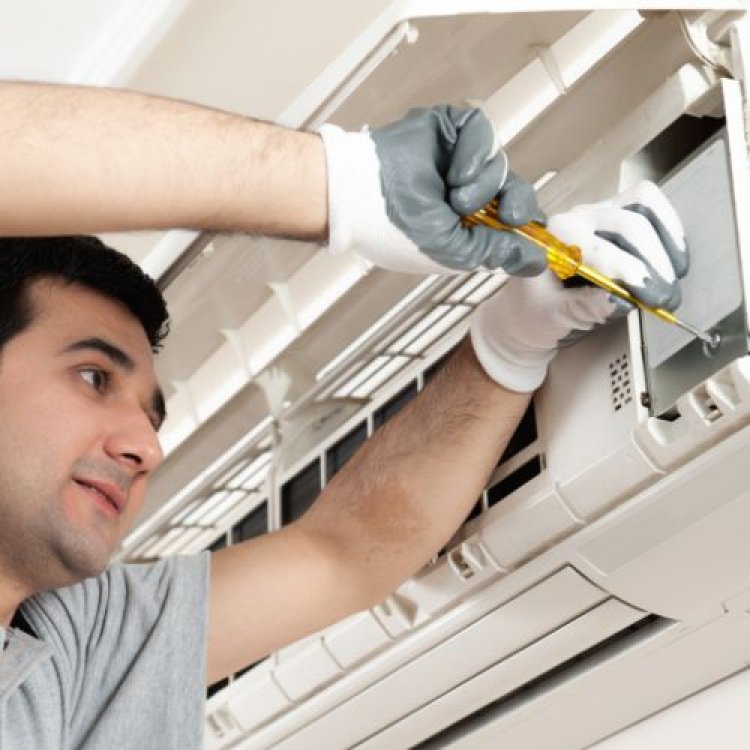5 Warning Signs of a Faulty AC Compressor
Discover the top 5 warning signs of a faulty AC compressor and learn how to spot issues early. From strange noises to reduced cooling, find out when it's time for repairs to keep your AC running smoothly.
Share this Post to earn Money ( Upto ₹100 per 1000 Views )

The AC compressor is a crucial component of any air conditioning system, responsible for circulating refrigerant and enabling the cooling process. When the compressor starts to fail, it can lead to a range of issues that affect the system's performance, efficiency, and even safety. Recognizing early warning signs of compressor problems can prevent small issues from turning into costly repairs or complete system breakdowns. By identifying potential faults early, you can ensure your AC continues to keep your space comfortable and functional.
Faulty AC compressors often exhibit specific symptoms, such as strange noises, reduced airflow, and unexpected changes in temperature. These signs indicate that the compressor is struggling to perform its essential function, which can lead to higher energy bills, inadequate cooling, and possible damage to other AC components. Knowing these warning signs not only helps in maintaining comfort but also prolongs the life of your AC system, making timely repairs a wise investment for long-term efficiency.
Here are some warning signs of a faulty AC compressor.
1. Unusual Noises
One of the most common signs of a faulty AC compressor is unusual noises. If you hear grinding, squealing, hissing, clicking, or ticking sounds coming from your AC unit, it’s a clear indication that something might be wrong. Grinding or squealing noises may suggest that internal components are wearing down or misaligned, potentially due to a failing motor or a lack of lubrication. Hissing can signal a refrigerant leak, which not only affects cooling performance but can also damage the compressor if left unresolved. Ignoring these noises can lead to further deterioration, so it’s essential to address them promptly.
2. Reduced Airflow
When an AC compressor starts to fail, you may notice a reduction in the airflow coming from the vents. This can mean that the compressor is struggling to circulate refrigerant effectively, which prevents the system from cooling your home evenly. As a result, you may experience weak airflow or even warm spots in different areas. Reduced airflow can stem from various causes, including a failing compressor, clogged air filters, or duct blockages. If cleaning the filters doesn’t resolve the issue, it’s worth checking the compressor, as ignoring this problem can lead to energy wastage and reduced cooling efficiency.
3. Warmer Air Than Usual
If your AC is blowing warm or lukewarm air instead of cool air, it’s a major red flag that the compressor may be struggling. The compressor’s main role is to compress refrigerant and drive it through the cooling system, which helps absorb heat and cool your space. If the compressor is low on refrigerant or has developed a leak, it won’t be able to perform this function efficiently, resulting in warmer air blowing through the vents. Not only does this reduce comfort, but it can also put added strain on the compressor as it tries to compensate, potentially leading to further issues.
4. Frequent Circuit Breaker Trips
If you find that the circuit breaker trips frequently when your AC is running, the compressor may be overheating or drawing too much power. This often happens when the compressor’s motor starts to wear out, causing it to work harder to maintain cooling. Over time, this can lead to frequent power surges, which the circuit breaker detects and stops by tripping to prevent electrical hazards. While occasional trips can happen due to electrical fluctuations, frequent trips are a serious warning sign. Ignoring this issue could damage other components in your AC system or even pose a fire risk, so it’s best to have a professional check your compressor.
5. Frequent Cycling
Frequent cycling, or the tendency for the AC to turn on and off more often than usual, is another sign of a potential compressor issue. A well-functioning AC system should have relatively stable cycles, cooling the room to the desired temperature before shutting off for a while. If the compressor is faulty, it may struggle to maintain consistent cooling, causing the AC to turn on and off in shorter intervals. This not only affects energy efficiency but also adds extra wear and tear to the system, reducing its overall lifespan. Frequent cycling can be caused by a range of issues, from thermostat malfunctions to compressor failure, and should be addressed to prevent more extensive damage.
Conclusion
A faulty AC compressor can disrupt the comfort and efficiency of your cooling system, making it essential to recognize the warning signs early. Issues like unusual noises, reduced airflow, and warmer air output often signal that the compressor may be struggling. By addressing these problems promptly, you can prevent further damage to your AC unit and avoid potentially expensive repairs. Regular maintenance and timely intervention ensure that your compressor continues to function effectively, providing consistent and efficient cooling for your home or business.
For those in Dubai, having access to reliable AC spare parts and professional services can be crucial for maintaining your system. AC spare parts dealers in Dubai offer essential components, including compressors, air filters, and specialized air conditioner tools, making it easy to replace faulty parts and keep your AC in top condition. By sourcing high-quality parts and addressing compressor issues as soon as they arise, you’ll protect your investment and enjoy a reliable cooling system for years to come.














